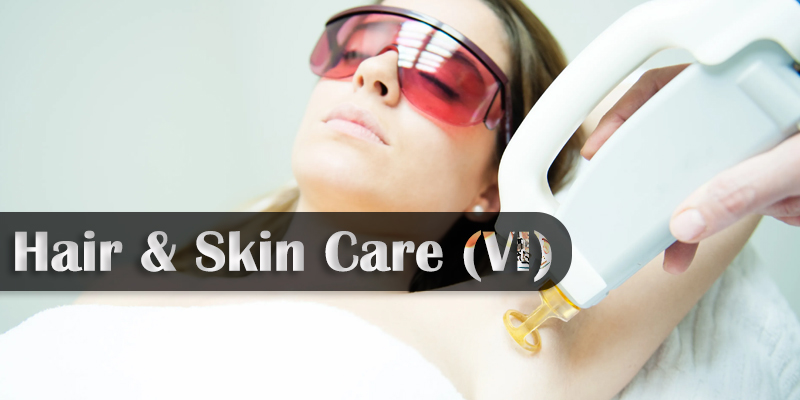
ITI Hair and Skin Care Trade Syllabus
The ITI "Hair and Skin Care" trade is a one-year vocational training program under the Craftsman Training Scheme (CTS), governed by the National Council for Vocational Training (NCVT). This course equips trainees with skills in hair cutting, styling, coloring, and skincare treatments to provide professional beauty services. The syllabus integrates theoretical knowledge, practical beauty techniques, and employability training to prepare students for roles such as hairdressers, beauticians, or salon assistants in beauty parlors, spas, or as independent entrepreneurs.
Course Overview
- Duration: 1 year (2 semesters, each 6 months)
- NSQF Level: Level 4
- Eligibility: Minimum 10th grade pass (or equivalent)
- Objective: To train individuals in hair and skin care techniques, beauty treatments, and salon management to meet industry standards and client expectations.
Detailed Syllabus Breakdown
1. Trade Theory (Theoretical Knowledge)
Covers foundational concepts in hairdressing and skincare.
- Semester 1
- Introduction to Hair and Skin Care
- Overview of the beauty industry and its scope.
- Role and responsibilities of a hair and skin care professional.
- Basic anatomy: structure of hair, scalp, and skin.
- Hair Care Basics
- Types of hair: dry, oily, normal, damaged.
- Hair growth cycle and common hair problems: dandruff, hair fall.
- Hair washing: shampoos, conditioners, techniques.
- Skin Care Basics
- Skin types: oily, dry, combination, sensitive.
- Skin structure: epidermis, dermis, subcutaneous layer.
- Common skin problems: acne, pigmentation, dryness.
- Tools and Equipment
- Hair tools: scissors, combs, brushes, dryers, clippers.
- Skin care tools: steamers, brushes, masks, applicators.
- Sterilization and maintenance of tools.
- Safety and Hygiene
- Personal hygiene: grooming, hand washing, uniform.
- Salon hygiene: sanitizing workstations, tools.
- Safety precautions: handling chemicals, electrical equipment.
- Introduction to Hair and Skin Care
- Semester 2
- Advanced Hair Care
- Hair cutting techniques: layering, trimming, blunt cut.
- Hair styling: blow drying, curling, straightening.
- Hair coloring: types of dyes, application methods, safety.
- Advanced Skin Care
- Facial treatments: cleansing, exfoliation, massage, masks.
- Skin treatments: bleaching, waxing, threading.
- Use of herbal and chemical products in skin care.
- Beauty Treatments
- Manicure and pedicure: tools, techniques, nail care.
- Makeup basics: foundation, eye makeup, lipstick application.
- Bridal and party makeup: trends and techniques.
- Salon Management
- Client consultation: understanding needs, suggesting services.
- Inventory management: products, tools, stock records.
- Costing and pricing: services, packages, profitability.
- Professional Skills
- Customer service: communication, handling complaints.
- Entrepreneurship: starting a small salon or beauty service.
- Trends in beauty industry: eco-friendly products, new techniques.
- Advanced Hair Care
2. Trade Practical (Hands-On Skills)
Focuses on practical hair and skin care techniques.
- Semester 1
- Hair Care Practice
- Washing and conditioning hair with different products.
- Basic hair cutting: trimming, shaping on dummy heads.
- Scalp massage and hair treatment for dandruff, hair fall.
- Skin Care Practice
- Identifying skin types and performing basic cleansing.
- Applying face masks and steaming techniques.
- Practicing threading on eyebrows and upper lip.
- Tool Handling
- Using scissors, combs, and brushes for hair styling.
- Operating hair dryers and steamers safely.
- Sterilizing tools and maintaining hygiene standards.
- Project Work
- Performing a complete hair wash and basic trim on a model.
- Preparing a skin care routine chart for different skin types.
- Hair Care Practice
- Semester 2
- Advanced Hair Care
- Cutting hair: layering, step cut, bob cut on live models.
- Styling hair: blow drying, curling with irons, updos.
- Coloring hair: applying temporary and permanent dyes.
- Advanced Skin Care
- Performing facials: massage, mask application, toning.
- Waxing legs, arms, and underarms with hot and cold wax.
- Bleaching face and body with safe techniques.
- Beauty Treatments
- Conducting manicures and pedicures with nail polish application.
- Applying basic makeup: day look, evening look.
- Practicing bridal makeup on a model with accessories.
- Project Work
- Executing a full hair and skin care session: cut, style, facial.
- Presenting a salon service plan with costing and inventory.
- Advanced Hair Care
3. Workshop Calculation and Science
Provides mathematical and scientific support for beauty tasks.
- Semester 1
- Arithmetic: calculating product quantities, service timings.
- Chemistry: pH of hair and skin products, chemical reactions.
- Measurements: mixing ratios for dyes, bleach.
- Semester 2
- Calculations: cost of services, profit margins.
- Science: effects of heat on hair, skin hydration principles.
- Biology: skin cell renewal, hair follicle structure.
4. Engineering Drawing
Focuses on technical drawing for salon setups.
- Semester 1: Sketching layouts of salon workstations and tool placement.
- Semester 2: Preparing diagrams for hair and skin treatment setups.
5. Employability Skills
Enhances job readiness and soft skills.
- Semester 1
- Communication skills: greeting clients, explaining services.
- Time management: completing treatments within schedule.
- Basic IT skills: recording appointments, client data.
- Semester 2
- Customer handling: managing bookings, resolving issues.
- Entrepreneurship: planning a small beauty parlor.
- Interview preparation: roles in beauty industry.
Assessment and Certification
- Examinations: Conducted semester-wise with theoretical and practical components.
- Certification: Successful candidates receive the National Trade Certificate (NTC) from NCVT, recognized nationally and internationally.
- Evaluation: Based on hair and skin care skills, client handling, theoretical knowledge, and project work.
Career Opportunities
- Employment: Hairdresser, beautician, salon assistant in beauty parlors, spas, or wellness centers.
- Self-Employment: Starting a home-based salon or mobile beauty service.
- Further Studies: Diploma in Cosmetology, Beauty Therapy, or Hairdressing.
Note
- This syllabus aligns with the latest NCVT guidelines and may vary slightly based on institutional or state-specific requirements.
- For the most current version, refer to the Directorate General of Training (DGT) website (dgt.gov.in) or consult your local ITI.
Trade Type
- 15 views